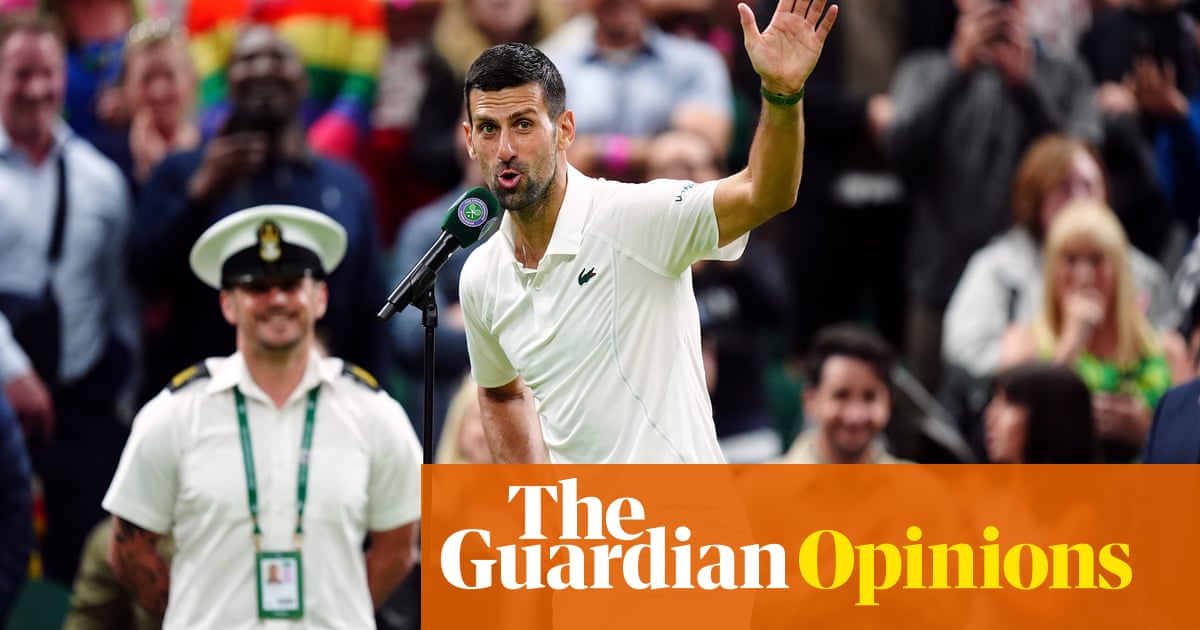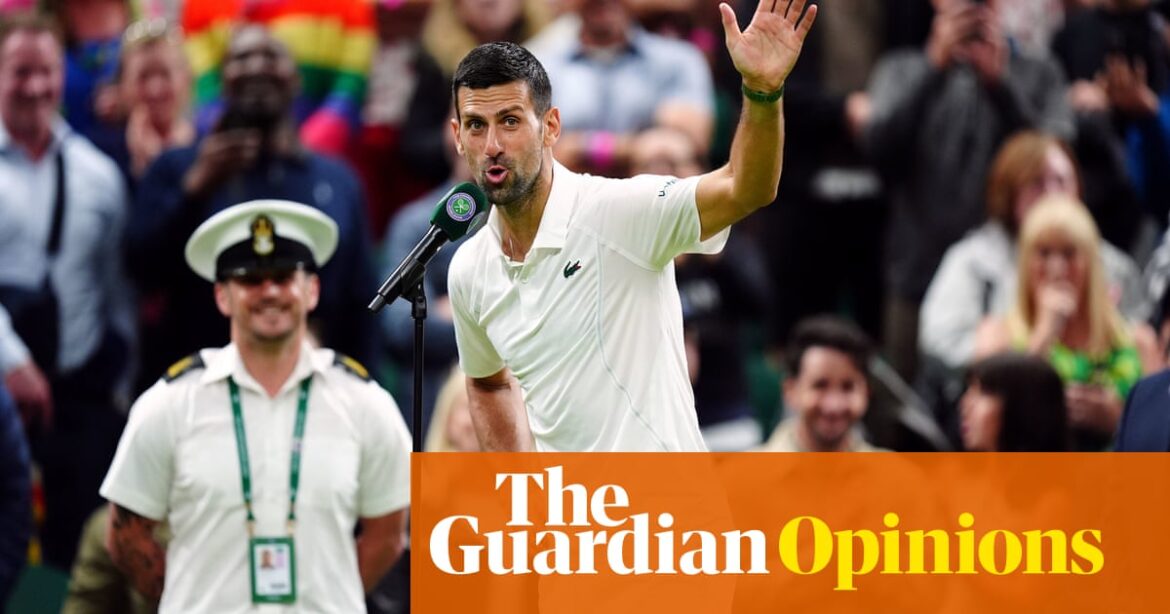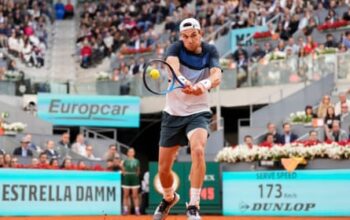
There is a truth, not quite universally acknowledged, but worth knowing by anyone who achieves public prominence. Being famous and successful doesn’t necessarily equate to being liked. Just ask Novak Djokovic.
One of the most recognisable people in the world for almost two decades, on the tennis court Djokovic often carries the aura of an invincible demigod. But in the court of public opinion, he has often shown himself to be a mere mortal.
So why the discrepancy between fame, success and popularity?
In the case of Djokovic, it’s partially self-inflicted; this week’s goading of the Wimbledon crowd was just the latest in a career littered with almost as much petulance as it has been gilded with accolades. Djokovic has at times made himself hard to love – his disqualification from the US Open in 2020 for accidentally hitting a line judge with a ball that was not in play can’t have helped. Ditto his high-profile refusal to take the Covid vaccine – which saw him deported from Australia ahead of the grand slam tournament there in 2022. But it’s not entirely his own doing.
Djokovic spent more than a decade wrestling for the spotlight with two other undisputed icons, Roger Federer and Rafael Nadal. Having risen to the top slightly later than the others, Djokovic was initially overshadowed both on and off the court. As he matched and eventually surpassed the achievements of his fellow tennis titans, it’s understandable that he might have expected public adulation to shift in his favour too. But it’s never quite happened; Federer and Nadal were universally beloved, where Djokovic was merely respected. Federer’s off-court persona was effortlessly suave and dapper enough to cover up his own occasional propensity to be a bad loser, while Nadal’s unwavering humility and modesty made him few enemies.
Comparison can be brutal; as well as paling in comparison with the brightest stars, proximity to them can often illuminate a celebrity’s defects in the eyes of the public. Our collectively lukewarm attitude towards King Charles and the monarchy in general, compared with the effervescent public enthusiasm for his late mother, is a powerful example of this phenomenon.
But the hysterical adoration that has followed Federer and Nadal through the twilight of their careers shows that Djokovic’s struggles with the spotlight of fame run deeper than comparison, bad behaviour, or even simply an aversion to success in such large quantities; and he’s also far from an anomaly when it comes to discrepancies between success and popularity.
Despite being the fuel that drives success in a massive number of industries, “ego” is still a dirty word. It might also be that as a public we recoil against what we perceive as celebrities trying too hard and too self-consciously to be liked.
It’s the same outside the world of sport. Elon Musk is the planet’s most recognisable businessman and has at points been the wealthiest human in existence. And in a fitting parallel with Djokovic, Musk seems to crave recognition of his successes in the form of public adoration. But rather than trying to achieve this by furiously bolstering his legacy of achievement, Musk pursues hearts and minds through an egocentric cult of personality. From boilerplate celebrity ego trips such as hosting Saturday Night Live, Musk has since attempted to prove his credentials as the most winningly funny man on the internet by acquiring his preferred social media platform and reigning over it like the digital version of a feudal king whose jokes we serfs are all forced to endure on pain of banishment. Needless to say, the harder Musk has tried to persuade us that we should love him, the more we have resisted – even to the detriment of the performance of his businesses.
Another burgeoning case study is the curious case of the UK’s new prime minister, Keir Starmer. Despite winning a historic majority at the general election, YouGov tells us that his net approval rating with the British public is -18%. Of course, in an arena as polarised as contemporary politics, tribalism puts certain limits on popularity. But this itself doesn’t explain why his numbers are quite so low.
It might just be that he’s not a natural media personality, lacking a little easy charisma and comfort in front of the camera. A brutal fact of the fame game is that sometimes your face or personality simply doesn’t fit. The crowd is fickle.
Djokovic suffered at the hands of this volatility this week when the Wimbledon crowd started cheering for his 21-year-old opponent, Holger Rune. But having dispatched the young Dane, his ill-fated attempts to bring the mob to heel by effectively booing back at them was ultimately, in the context of the fame game, futile. You can’t buy love. You can’t bully your way to it either.
-
Mark Borkowski is a crisis PR consultant and author
-
Do you have an opinion on the issues raised in this article? If you would like to submit a response of up to 300 words by email to be considered for publication in our letters section, please click here.



